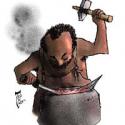Click here if you don’t see subscription options
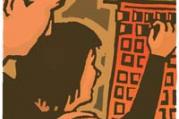
“They shall beat their swords into plowshares and their spears into pruning hooks” (Is 2:4)
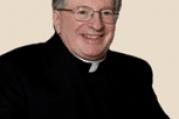


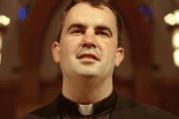


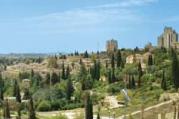

Wrestling Long and Hard
As a member of the International Commission on English in the Liturgy, I want to praise Bishop Donald W. Trautman, who usefully highlights some of the challenges facing translators of the Roman Missal (How Accessible Are the New Mass Translations? 5/21). The text he discusses, the prayer over the gifts for Masses of the Blessed Virgin during Advent, is one of the most difficult in the Missal and caused I.C.E.L.s translators to wrestle long and hard. They will be glad of any further help that may be forthcoming.
The difficulty arises in part from the prayers allusions to two doctrines that were better understood in patristic times than today. Not only its language, but also its thinking, is remote from what Bishop Trautman calls the contemporary mainstream of U.S. Catholics.
The first doctrine is that the sacrifices of the Old Testament prefigured and were brought to an end by the sacrifice of Christ. The churchs redefinition of her attitude to Judaism at the Second Vatican Council has made Catholics hesitant to speak of the New Testament as superseding the Old; but without some notion of the bond between the testaments, it would make no sense to read the Hebrew Scriptures at the Christian liturgy at all. The translators have found no word better for expressing the concept in question than the traditional one, prefiguring.
The second is the doctrine of the perpetual virginity of Mary, which means not only that she abstained from intercourse, but that she remained physically intact as she gave birth. How this happened is a mystery. Some of the Fathers said that Christ passed from her body like a light through glass. Our Latin text uses the word ineffabiliter. Unspeakably does not seem to be a good translation. Nor do inexplicably, indescribably, inconceivably or incomprehensibly, all words whose connotations would not fit the context. So the translators chose, here and elsewhere, to press into service an English word that, though rare, is not difficult to explain: ineffably.
Inviolate is aurally ambiguous, since it can be heard as in violet. The translators wished to avoid it and looked around for an alternative term to use in this sensitive area of discourse. They felt that many would find intact too directly physical or medical. Other terms that were proposed could be heard as indelicate. In the end, inviolate was the best they could do.
Though the theology of this prayer is ancient, its text is not. It was not even in the Missals of 1970 or 1975, but first appeared in the 2002 edition. It may have been written as late as 1987. Translators find recently composed prayers among the most difficult of all because, in eagerness to hand on the churchs tradition or to incorporate the insights of Vatican II, modern authors sometimes cram too many ideas into too small a space. But their compositions are in the Missal, and they must be translated.
Bishop Trautman ends with a call that I.C.E.L. can readily echo: Speak up! Anybody who can offer a better version of this difficult text is most welcome to send it to the I.C.E.L. secretariat for consideration by the bishops of the commission when they meet in July. It is healthy for critics of any translation to ask themselves not only Do I like this version? but also Can I do better?
(Msgr.) Bruce Edward Harbert

